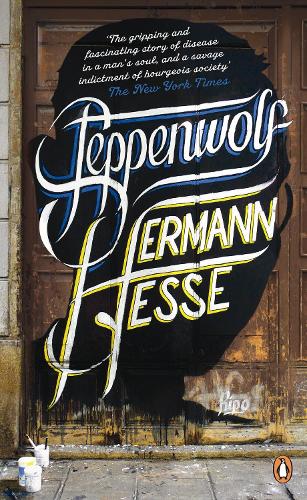
Steppenwolf
(Paperback)
Available Formats
Paperback
Published: 11th May 2012
Paperback
Published: 13th May 2011
Paperback
Published: 29th June 2009
Publishing Details
Steppenwolf
By (Author) Hermann Hesse
Revised by Walter Sorell
Translated by Basil Creighton
Penguin Books Ltd
Penguin Books Ltd
13th May 2011
7th April 2011
United Kingdom
Classifications
General
Fiction
Fiction in translation
833.912
Physical Properties
Paperback
256
Width 113mm, Height 181mm, Spine 16mm
145g
Description
The novel that became the hip bible of Sixties counterculture 'The unhappiness that I need and long for . . . is of the kind that will let me suffer with eagerness and die with lust. That is the unhappiness, or happiness, that I am waiting for.' Alienated from society, Harry Haller is the Steppenwolf, wild, strange and shy. His despair and desire for death draw him into an enchanted, Faust-like underworld. Through a series of shadowy encounters, romantic, freakish and savage by turn, Haller begins to rediscover the lost dreams of his youth. Adopted by the Sixties counterculture, Steppenwolf captured the mood of a disaffected generation that was beginning to question everything.
Reviews
The gripping and fascinating story of disease in a man's soul, and a savage indictment of bourgeois society * New York Times *
Existential masterpiece * The Times *
A profoundly memorable and affecting novel * New York Times *
Author Bio
Hermann Hesse was born in Calw, Germany, in 1877. After a short period at a seminary he moved to Switzerland to work as a bookseller. From 1904 he devoted himself to writing, establishing his reputation with a series of romantic novels. During the First World War he worked for the Red Cross. His later novels - Siddartha (1922), Steppenwolf (1927), Narziss und Goldmund (1930) and Das Glasperlenspiel (The Glass Bead Game, 1943) - poems and critical essays established him as one of the greatest literary figures of the German-speaking world. He won many literary awards including the Nobel Prize for Literature in 1946. Hermann Hesse died in 1962.
